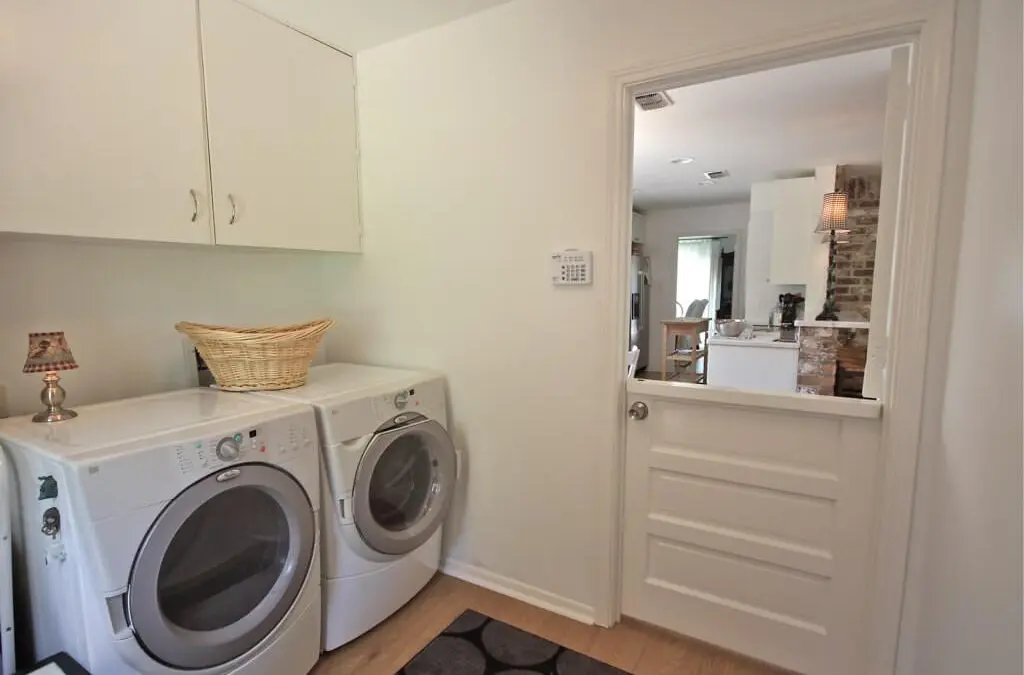Appliances have played a pivotal role in easing daily chores for over a century. However, frequent replacements due to malfunctions or inefficiencies can be costly. Fortunately, with proper care and maintenance, you can significantly extend the lifespans of your appliances. Here are practical tips to ensure your household appliances last longer and work efficiently.
Extend the Lifespans of Your Appliances with Regular Maintenance
Refrigerators: To keep your refrigerator running efficiently, clean the condenser coils at least twice a year. Dust and pet hair can accumulate on these coils, causing the motor to overheat and work harder than necessary. Check and replace the door seal if it’s loose or cracked to ensure proper cooling.
Washers and Dryers: For washing machines, use the correct amount of detergent and run a cleaning cycle monthly to prevent residue buildup. Check hoses annually for any signs of wear and replace them every three to five years. For dryers, clean the lint filter after each use and ensure the vent duct is clear of obstructions to improve efficiency and reduce fire hazards.
Dishwashers: Clean the filter regularly to prevent food particles from clogging the mechanism. Periodically run the dishwasher empty with a cup of white vinegar on the top rack to remove grease and odors and improve cleaning efficiency.
Ovens and Stoves: Keep the interior of your oven and stovetop clean from grease and food spills, which can cause smoke and affect cooking efficiency. If you have a gas stove, ensure the burner ports are clear of debris to maintain an even flame.
Proper Usage
Follow Manufacturer Instructions: Always adhere to the manufacturer’s guidelines for operating appliances. Overloading washers or dishwashers, for instance, can lead to motor strain and increased wear and tear.
Be Energy-Wise: Use appliances during off-peak energy hours to reduce electrical stress and save on energy bills. For example, running your dishwasher late in the evening or early morning can improve appliance health and efficiency.
Energy Efficiency
Upgrade to Energy-Efficient Models: When it’s time to replace your appliances, consider energy-efficient models that use less power and are generally designed to be more durable than their conventional counterparts.
Use Smart Home Technology: Smart plugs and energy monitors can help you track and manage your appliances’ energy usage. These devices can detect inefficiencies and suggest the optimal times for usage.
Periodic Inspections Extend the Lifespans of Your Appliances
Schedule Professional Servicing: Have your major appliances, like the HVAC and water heater, checked by a professional at least once a year. This can help catch issues before they become major problems and ensure that your appliances are in top working order.
Environment Considerations
Protect from the Elements: Keep appliances away from direct sunlight and other heat sources. Excessive heat can cause appliances to overheat, which reduces efficiency and lifespan. Ensure good ventilation around your appliances to prevent them from overheating.
Optimal Settings: Use the most appropriate settings for different loads, for example, adjusting the refrigerator temperature during winter and summer to prevent overworking the compressor.
By following these practical tips and incorporating regular maintenance and proper usage habits, you can significantly extend the life of your appliances, ensuring they run efficiently and effectively for many years. This proactive approach saves money and contributes to a more sustainable household.
FAQs
How often should I clean the filters in my appliances?
It depends on the appliance. Refrigerator coils should be cleaned every six months, dishwasher filters should be cleaned monthly, and dryer lint filters should be cleaned after each use.
Is it worth repairing an old appliance, or should I just replace it?
This depends on the cost of the repair versus the cost of a new appliance. If a repair costs more than 50% of the price of a new appliance and the unit is beyond half its expected lifespan, replacement might be the more economical choice.
Can overloading the washing machine damage it?
Yes, overloading can cause significant stress on the washing machine’s motor, drum, and suspension, leading to quicker wear and potential breakdowns.
Are energy-efficient appliances more durable?
Energy-efficient appliances are designed to use less energy and often feature improved technologies and components that enhance durability compared to older models.
Cole’s Inspection Services provides inspections to homebuyers and sellers in Statesville, NC, and the surrounding area. Contact us to schedule our service.

